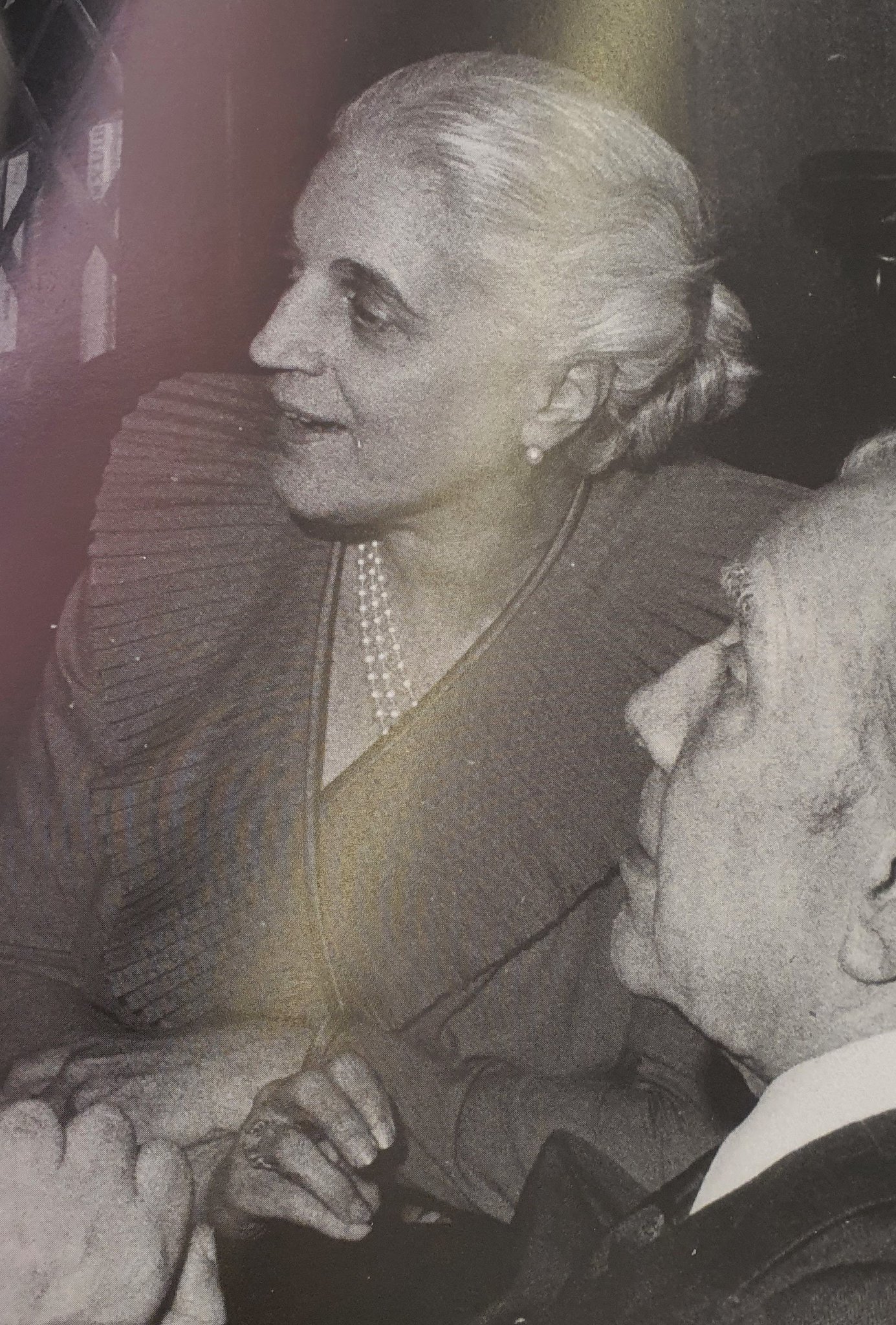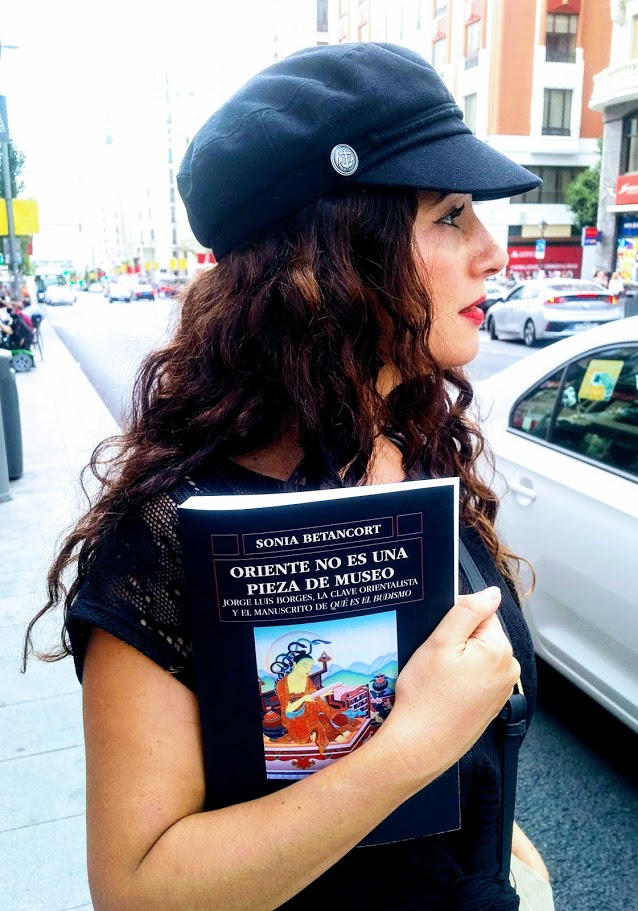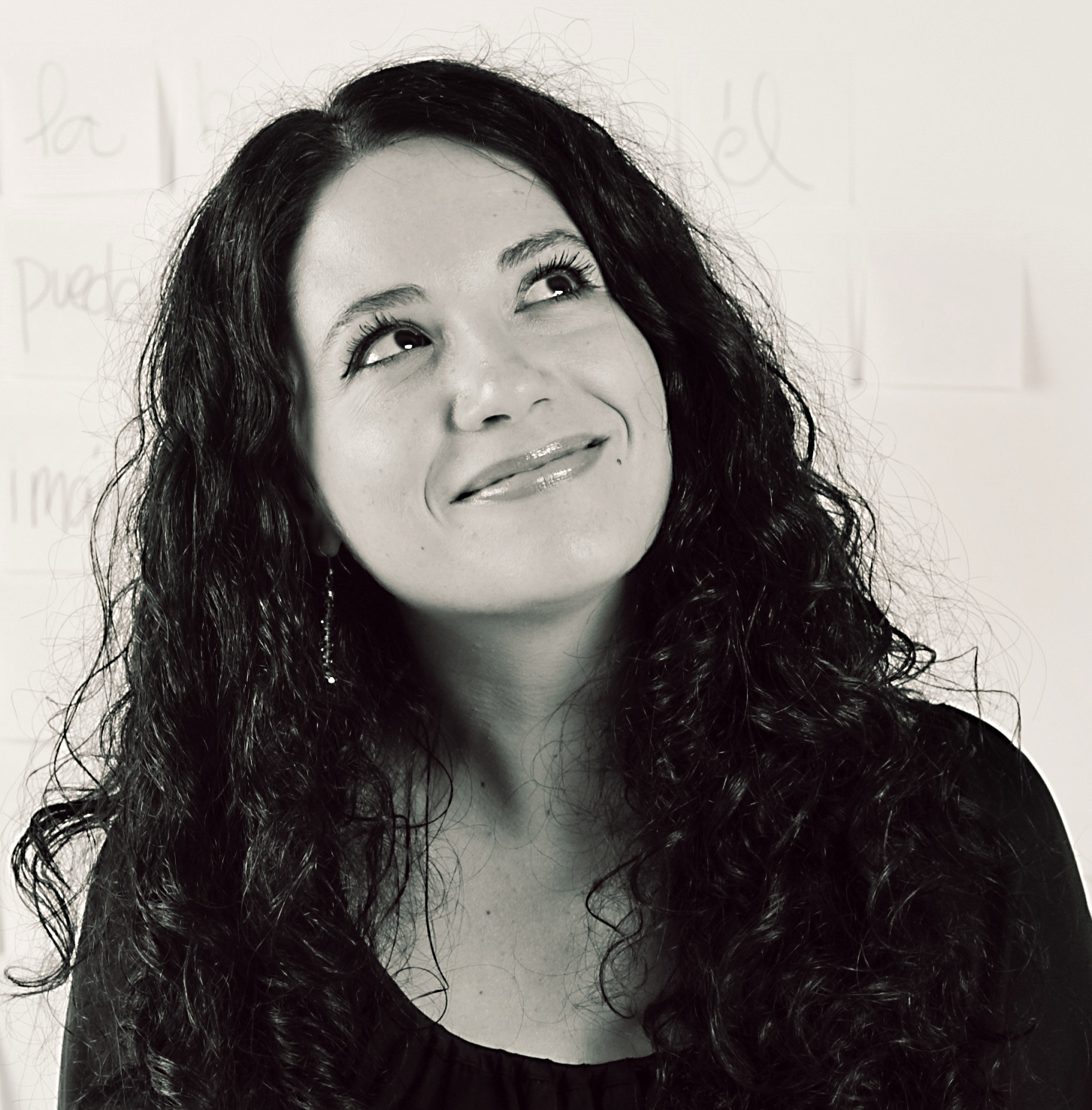2022 has been a good year for Dr. Sonia Betancort at Camilo José Cela University, where she has been working since 2012. Just a few weeks ago, the professor of philology and Spanish received the Premio a la Excelencia Docente from the university she teaches at, the equivalent of an Excellence in Teaching award. She is extremely diverse in her interests and juggling several projects: “I have been exploring how my research interest, the Argentinian author Jorge Luis Borges, is referenced in today’s digital world. I can identify Borges’ themes in numerous video games, apps, website literature, and more. I am studying a series of Latin American women writers who stand out in their engagement with Orientalism, feminism, and ecology. Yet I can tell you that they have been studied very little, such as my other figure of interest, Alicia Jurado. I also look at how Buddhist, feminist and environmental themes can reach children and young people. I think that this is where we can build the changes we need. In addition, I am doing comparative work on Spanish and Latin American authors who share a global vision of Hispanic culture.”
As a poet, Dr. Betancort has begun writing a book of poems connected to her research. She is increasingly aware that all these languages are linked. Also, she thinks it is a marvelous need and a opportunity to connect and help others.

I asked her how, as someone who was born in a traditionally non-Buddhist culture like Spain, how she first got into contact with Buddhism. Furthermore, as she developed her academic interests, how did she begin working on identifying Buddhism’s relationship to her favorite figures, Jorge Luis Borges and Alicia Jurado?
“My first contact with Buddhism was during adolescence. I was looking for refuge, something spiritual and happiness in books. I remember coming across readings from the Arab world, present in Spain since the Middle Ages. There was something very suggestive there, but I was looking for something else. Later, at the University, I discovered European books influenced by Buddhism, such as Hermann Hesse’s Siddhartha,” she tells me.
“Affected deeply by authors like Hesse, I began to study cultures and religions from Asia. At the same time, my passion for Latin America was growing. In 2001, confused about my future, I received a research grant to go to Argentina. I wanted to study the “Eastern side” of Borges. It was a great surprise because what was then just my intuition was transformed into a beautiful network that convinced me of the Orient that Borges investigated all his life and the mysterious and unknown work by Alicia Jurado.”
Dr. Betancort even met with the writer. “She was so generous with me. After some interviews, she gave me a copy of the manuscript of What is Buddhism, which she published with Borges in 1976. With this treasure, I understood I had a mission: to discover the Buddhist side of one of the most prestigious authors of Hispanic letters of the 20th century. That guided my studies and, in some way, my life.”

Dr. Betancort earned her PhD at the Universidad de Salamanca. In 2018, she published Oriente no es una pieza de museo. Jorge Luis Borges, la clave orientalista y el manuscrito de ‘Qué es el budismo’ (Oriente is not a museum piece. Jorge Luis Borges, the orientalist key and the manuscript of ‘What is Buddhism’). Thanks to the generosity of María Kodama, Borges’s widow, we have reproduced his entire manuscript. She is particularly proud of this volumen, calling it, “a summary of my discoveries. I never imagined it would have such an impact.”
Borges is unique for his ties to Anglophone literature and his academic and sociological identity as a “postcolonial Orientalist,” approaching Asia as a modern creation and formerly colonized subject. This is the Borgean literary affinity (afinidad literaria borgeana). Expand on this a bit more.
As Dr. Betancort says, “Everything in Borges’s literature refers to a paradox. Reconciled polarities and connected opposites interested him since he was a child. This paradoxical tendency lies in his evaluation of Eastern culture and, in particular, in his ideas about Buddhism. I would say that, in Borges, we find the paradox of an orientalist author who looks at Asia from a postcolonial country. This is a far cry from Edward Said’s ideas, who saw in Orientalism a mask of European imperialism. Borges writes from once-colonized territory without imperialist interests. At the same time, his bibliographies are peppered by Europeans from the 18th and 19th centuries. Yet his sources are not all from academia. He combines and reconciles them with others totally outside the Orientalist canon. So, unlike European scholarship, Borges connects with marginal expressions of writers, explorers, adventurers, and artists that created a free vision of the Orient – Asia for Asians. In this case, we can say that he surpasses European Orientalism while also recreating the Oriental with the aesthetic of literary fantasy.”

Borges’s international projection is impressive. Dr. Betancort reminds me that many digital and interactive works today reference and interpret him. “However, I think that the diffusion and projection of Buddhism that Borges did is still largely undiscovered. Not many people know that from a literary perspective, he is one of the most important exponents and disseminators of Buddhism in Latin America during the 20th century. And probably that is why we are doing this lovely interview today,” she adds kindly.
“Borges’s literary world has many perspectives, all in dialogue and extremely valuable. Buddhism is a critical piece of that Borgesian puzzle that connects to something universal, abstract, cognitive, and emotional that all cultures share. He is interested in time games that disrupt our Western idea in favor of investigation and categorization. He breaks the model of the egocentric writer for a ‘collective and anonymous character,’ as he says in his essay ‘La personalidad y el Buddha.’”
The other half of Borges is, of course, the life and academic education of Alicia Jurado. “On the one hand, I think Alicia’s collaboration in What is Buddhism was much more profound than what she declared. Because of that, Borges always singled her out as a co-author. If we study her press notes or her literary work, we see that pacifism, the vision of women, or nature are concerns that she could induce in Borges. That is very noticeable in What is Buddhism, where, especially in the last chapters, they defend Buddhist ethics as an inspiration for coexistence in Latin American nations.”
Dr. Betancort notes that Jurado wrote about cosmopolitanism as a way of “twinning” local and global co-existence. She defended universal interdependence and, as someone with a PhD in natural science, tried to reframe humanity as a biological species. These ideas, which she had been sharing since the mid-20th century, advanced debates about Argentinian identity, the dimension of the Pampean plain, and the presence of women in society.

“Although Alicia doesn’t refer specifically to the term eco-feminism, it is evident that, through her essays, we can observe this relationship. In a very organic way, all this appears connected with Eastern cultures, mainly with Buddhism. Jurado talks about how Hispanic great-grandmothers contributed to the freedom and emancipation of the Spanish colonies. In this historical process, however, the vanquished Amerindians were at par with the humiliation of the woman. Thus, these emancipating great-grandmothers hardly knew the freedom that paradox they built too. In this sense, after that first emancipation, the 20th century provoked another, that of women. Her vision of female autonomy comes from two perspectives, one from Buddhism and the other from ecology. With the first, she defends the equality of all beings and the change of the masculinity model for a more empathetic social cohabit. She based that on love for others and the cultivation of spirituality. On the other hand, she thinks that the subjugation of nature in favor of local interests has created terrible problems for humanity. She defends that only overcoming these local interests and understanding that we are a global species can help to respect nature and create a sustainable future.”
The main task that Dr. Betancort assigns herself now is to popularize, as much as she can, the connected work of Borges and Jurado. She is already breaking ground in Argentinian and Spanish literary circles, and hopes to break into the Anglophone world at some point – perhaps, in a sense, following in the footsteps of Borges, whose incomplete project she has now taken up.


